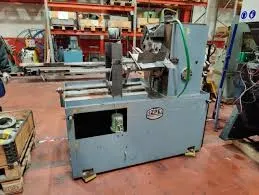
-
 Afrikaans
Afrikaans -
 Albanian
Albanian -
 Amharic
Amharic -
 Arabic
Arabic -
 Armenian
Armenian -
 Azerbaijani
Azerbaijani -
 Basque
Basque -
 Belarusian
Belarusian -
 Bengali
Bengali -
 Bosnian
Bosnian -
 Bulgarian
Bulgarian -
 Catalan
Catalan -
 Cebuano
Cebuano -
 Corsican
Corsican -
 Croatian
Croatian -
 Czech
Czech -
 Danish
Danish -
 Dutch
Dutch -
 English
English -
 Esperanto
Esperanto -
 Estonian
Estonian -
 Finnish
Finnish -
 French
French -
 Frisian
Frisian -
 Galician
Galician -
 Georgian
Georgian -
 German
German -
 Greek
Greek -
 Gujarati
Gujarati -
 Haitian Creole
Haitian Creole -
 hausa
hausa -
 hawaiian
hawaiian -
 Hebrew
Hebrew -
 Hindi
Hindi -
 Miao
Miao -
 Hungarian
Hungarian -
 Icelandic
Icelandic -
 igbo
igbo -
 Indonesian
Indonesian -
 irish
irish -
 Italian
Italian -
 Japanese
Japanese -
 Javanese
Javanese -
 Kannada
Kannada -
 kazakh
kazakh -
 Khmer
Khmer -
 Rwandese
Rwandese -
 Korean
Korean -
 Kurdish
Kurdish -
 Kyrgyz
Kyrgyz -
 Lao
Lao -
 Latin
Latin -
 Latvian
Latvian -
 Lithuanian
Lithuanian -
 Luxembourgish
Luxembourgish -
 Macedonian
Macedonian -
 Malgashi
Malgashi -
 Malay
Malay -
 Malayalam
Malayalam -
 Maltese
Maltese -
 Maori
Maori -
 Marathi
Marathi -
 Mongolian
Mongolian -
 Myanmar
Myanmar -
 Nepali
Nepali -
 Norwegian
Norwegian -
 Norwegian
Norwegian -
 Occitan
Occitan -
 Pashto
Pashto -
 Persian
Persian -
 Polish
Polish -
 Portuguese
Portuguese -
 Punjabi
Punjabi -
 Romanian
Romanian -
 Russian
Russian -
 Samoan
Samoan -
 Scottish Gaelic
Scottish Gaelic -
 Serbian
Serbian -
 Sesotho
Sesotho -
 Shona
Shona -
 Sindhi
Sindhi -
 Sinhala
Sinhala -
 Slovak
Slovak -
 Slovenian
Slovenian -
 Somali
Somali -
 Spanish
Spanish -
 Sundanese
Sundanese -
 Swahili
Swahili -
 Swedish
Swedish -
 Tagalog
Tagalog -
 Tajik
Tajik -
 Tamil
Tamil -
 Tatar
Tatar -
 Telugu
Telugu -
 Thai
Thai -
 Turkish
Turkish -
 Turkmen
Turkmen -
 Ukrainian
Ukrainian -
 Urdu
Urdu -
 Uighur
Uighur -
 Uzbek
Uzbek -
 Vietnamese
Vietnamese -
 Welsh
Welsh -
 Bantu
Bantu -
 Yiddish
Yiddish -
 Yoruba
Yoruba -
 Zulu
Zulu
Exploring the Cost Factors and Price Range of Thread Rolling Machines for Efficient Manufacturing
The Cost of Thread Rolling Machines A Comprehensive Overview
In the manufacturing landscape, the demand for high-quality threaded components has led to the widespread adoption of thread rolling machines. These machines are pivotal in the production of screws, bolts, and various other fasteners that are essential in numerous industries, including automotive, aerospace, and construction. As businesses seek to optimize their production capabilities, understanding the factors that influence the price of thread rolling machines becomes crucial.
Understanding Thread Rolling Machines
Thread rolling is a cold-forming process that deforms a workpiece to create threads without removing material. This method offers several advantages over traditional cutting methods, including enhanced material properties, reduced waste, and improved surface finish. Thread rolling machines come in various types, including flat, cylindrical, and planetary models, each designed for specific applications and production volumes.
Factors Influencing Price
1. Type of Machine The price of thread rolling machines varies significantly based on the type and complexity of the machine. Simple flat thread rollers are generally more affordable, while advanced planetary machines, capable of producing highly intricate threads, can come at a premium.
2. Capacity and Size The capacity of a machine refers to the size and weight of the materials it can handle. Machines designed for larger components typically cost more due to the increased engineering and materials involved.
3. Automation Modern manufacturing often leans towards automation for efficiency and cost savings. Machines equipped with advanced automation features, such as programmable controls and robotic loading/unloading systems, tend to be more expensive but can lead to significant labor savings over time.
thread rolling machine price product

4. Brand and Reputation Established brands with a reputation for quality often command higher prices due to their reliability and after-sales service. Buyers may consider investing in these brands for long-term benefits, including reduced downtime and maintenance costs.
5. Customization Many manufacturers require unique machines tailored to their specific production needs. Custom-designed thread rolling machines often come with a higher price tag due to the additional engineering and design processes involved.
6. Market Trends Economic conditions and market demand play a vital role in pricing. During periods of high demand for fasteners, machine prices may rise due to increased competition and material costs.
Average Price Range
The cost of thread rolling machines can vary widely, generally ranging from a few thousand to several hundred thousand dollars. Entry-level machines might start around $10,000, while fully automated systems can exceed $200,000. It is essential for buyers to assess their production needs and budget when considering a purchase.
Conclusion
Investing in a thread rolling machine is a significant decision for manufacturers looking to enhance their production capabilities. By understanding the factors that influence the price of these machines, businesses can make informed choices that align with their operational needs and financial constraints. As technology continues to evolve, staying abreast of market trends will also help manufacturers to secure the best equipment that meets their production requirements while providing a solid return on investment. Whether opting for a simple machine or a high-tech automated system, the right thread rolling machine can contribute significantly to the efficiency and quality of production processes.
